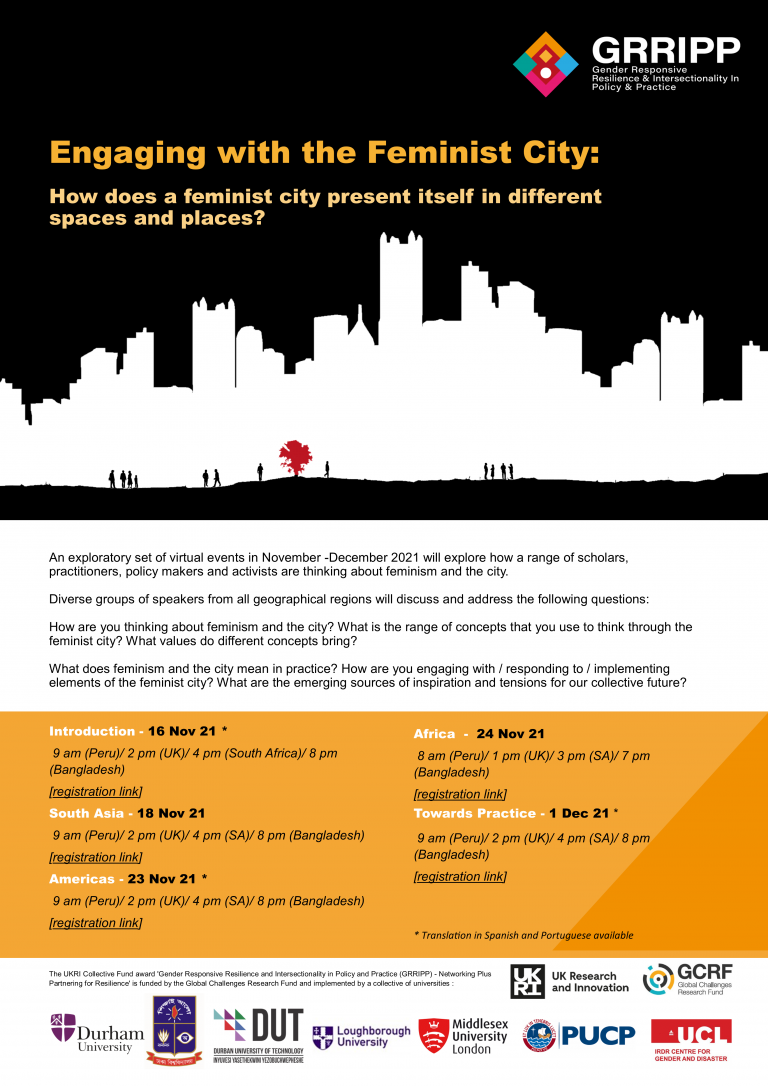We explore and promote gender responsive infrastructure and planning – making cities, towns and villages work for all; before, during and after disasters, and more resilient to climate change.
Description
The majority of infrastructure projects fail to take gender inequalities and patterns of exclusion into account. Beyond access to services, the routine lack of women’s participation at all stages in engineering infrastructure projects means gender inequality is reinforced and infrastructure loses important potential inputs that could make it more effective and sustainable. Those are largely instrumentalist arguments in favour of the inclusion of women and other social groups in the engineering infrastructure process. There is a more fundamental rights-based argument that demands equality of opportunity at every stage but which is rarely achieved.
GRRIPP - A series of 5 online events to discuss Feminism and the City
Between November 2021 and January 2022, the Gender Responsive Resilience in Policy and Practices (GRRIPP) hosted an exploratory series of virtual events from a range of geographical regions. Discussioons addressed the following questions:
How are you thinking about feminism and the city? What is the range of concepts that you use to think through the feminist city? What values do different concepts bring? What does feminism and the city mean in practice? How are you engaging with/ responding to/ implementing elements of the feminist city? What are the emerging sources of inspiration and tensions for our collective future?
The five linked events, each two-hours long and hosted by a different region are availble to watch from the Feminist City Events page.

 Close
Close

